Ancient Malta, Part II
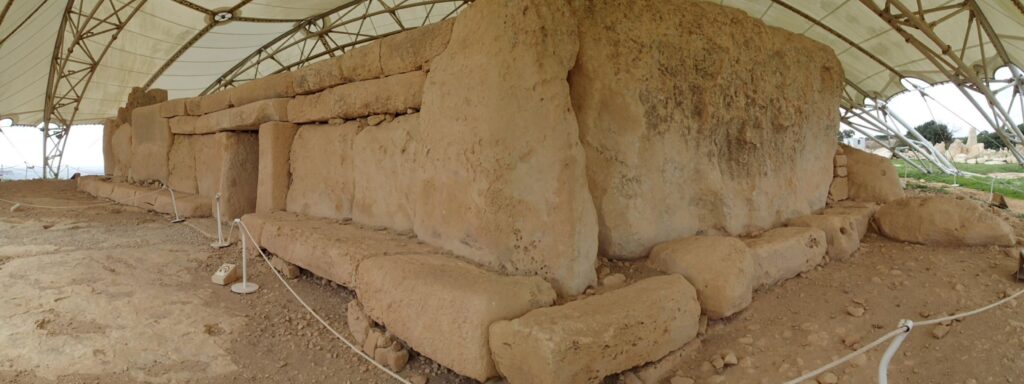
Malta’s first human inhabitants didn’t only leave the Subterranean Hypogeum as evidence of their existence on the Tiny Isles (see Ancient Malta, Part 1). Other ancient temples have also survived to the present day, which is miraculous considering the turbulent times Malta has endured (see Valetta – Siege City).
The Hagar Qim Archaeological Park is located on the south coast of Malta, and can easily be reached by bus from Valetta. This is assuming that you can find the correct bus stop, which I failed to do. After a little walking tour of the busy Msida district I eventually found the correct bus, and jumped on board for the 45 minute trip.
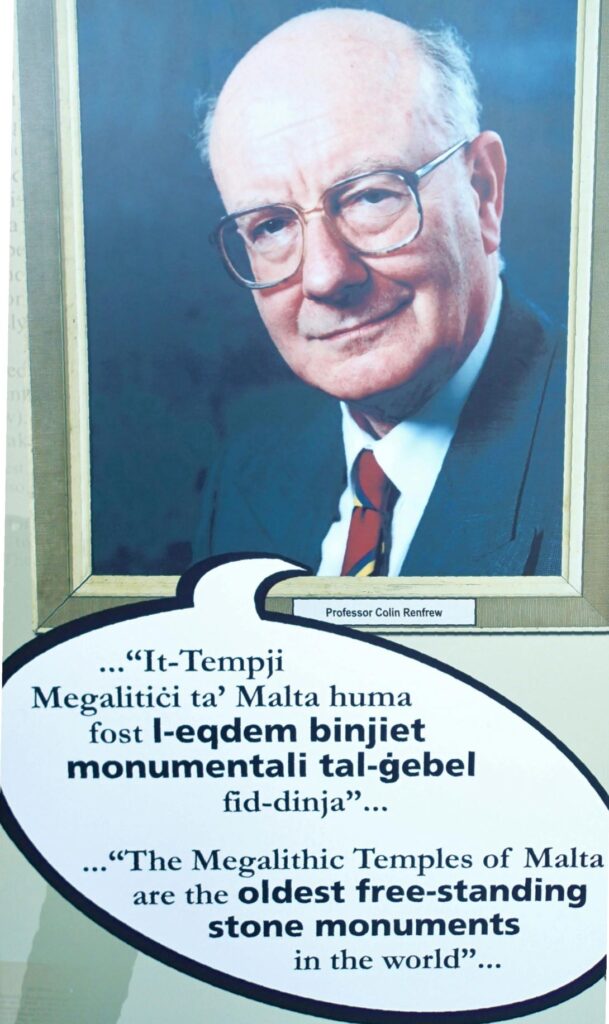
Not satisfied with being unable to find my bus earlier, I backed it up by missing my stop. I watched the temple site drift by as the bus accelerated down the hill towards the coast. It turned out to be for the best, as after alighting at the next opportunity I found somewhere for an early lunch.
After a feed I walked back up the hill to the Archaeological Park. I bought my ticket, spent a little time in the visitor’s centre, then walked the short distance through the wind and drizzle to the first temple, Hagar Qim.
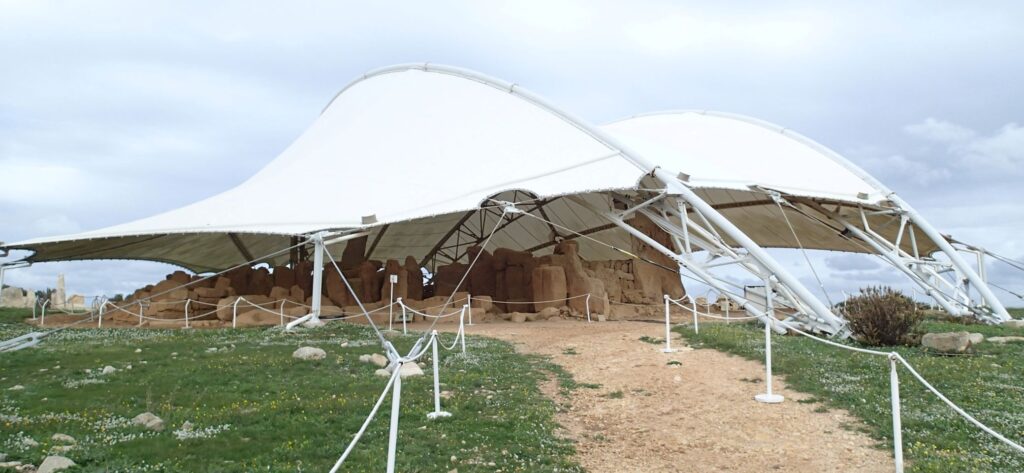
In order to preserve this monument, the management have erected a shade structure which covers the entire temple. Despite the modern ‘roof’, entering the temple through the stone doorway did feel like stepping back in time to ancient Malta.
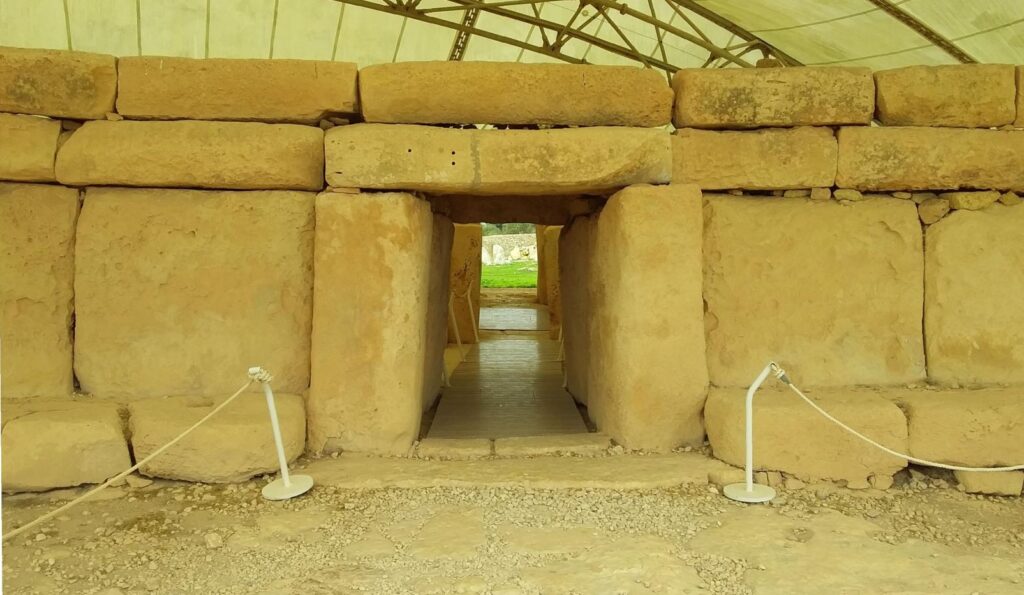
The builders of the Hagar Qim Temple used hard limestone for the external surfaces, and a softer variety for the internal, permitting the carving of features and designs. Malta is pretty much a big chunk of limestone, so there was plenty of it about.
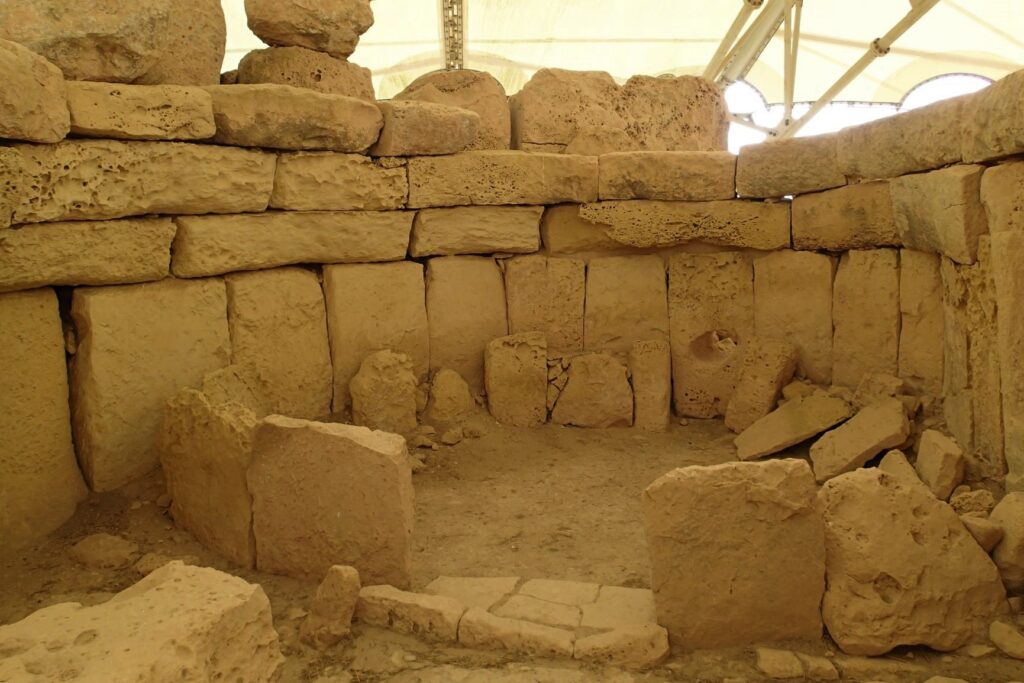
The ancient Maltese built the temple in such a way that the summer solstice sunrise would direct light through a hole in the wall and illuminate a particular piece of stone inside. The designers evidently had a detailed knowledge of astronomy, a good grasp of maths, and a great sense of theatre.
Early excavations revealed all sorts of goodies inside Hagar Qim, including figurines depicting portly women. Researchers reckon that these figurines, plus the cool summer solstice party trick, indicate the temple was used for worshipping mother earth and fertility rites.
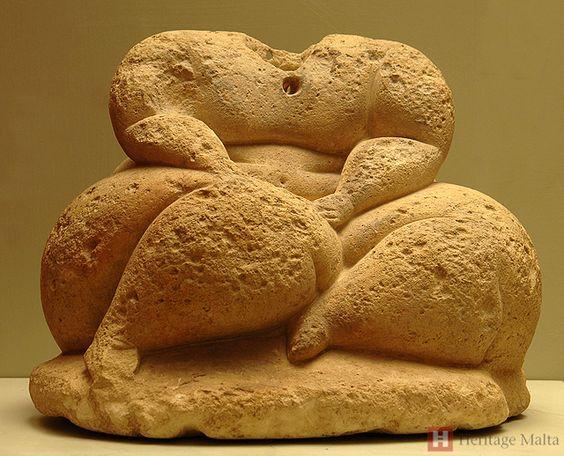
There are some sizeable blocks of stone used in the construction of Hagar Qim, including this huge slab estimated to weigh about 20 tonnes. Information at the site states ‘It would have required a great deal of organisation and a considerable working force to erect these features in place.’ Quite so. Though I reckon the builders found this slab sitting on the hill and thought ‘Geez we can save ourselves heaps of time if we just build the temple around this big bastard.’
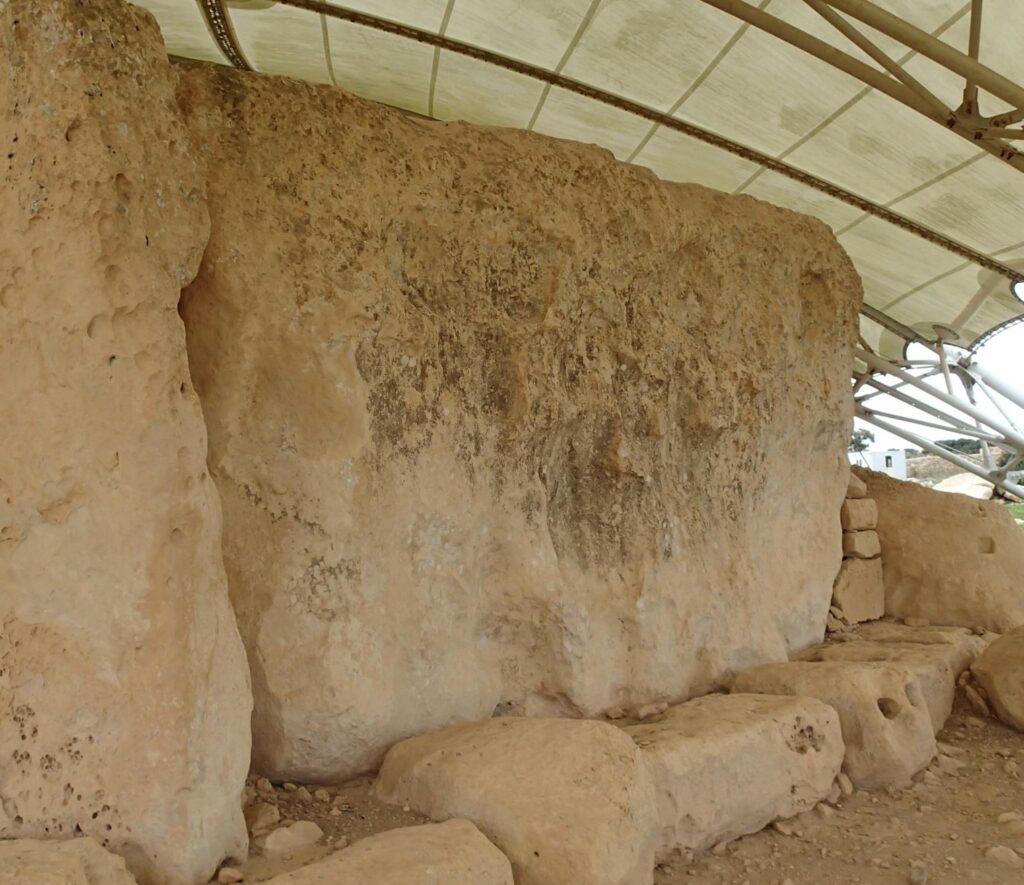
A few hundred metres away across the windswept limestone are the Mnajdra Temples. Covering a larger area than Hagar Qim, this complex consists of three structures each featuring a number of rooms.

Getting a little carried away, the architects designed one of the temples so the rising sun lights up particular features of the building during both solstices and both equinoxes too. Petroglyphs can be found within the temple rooms, some of which are thought to be prehistoric calendars.
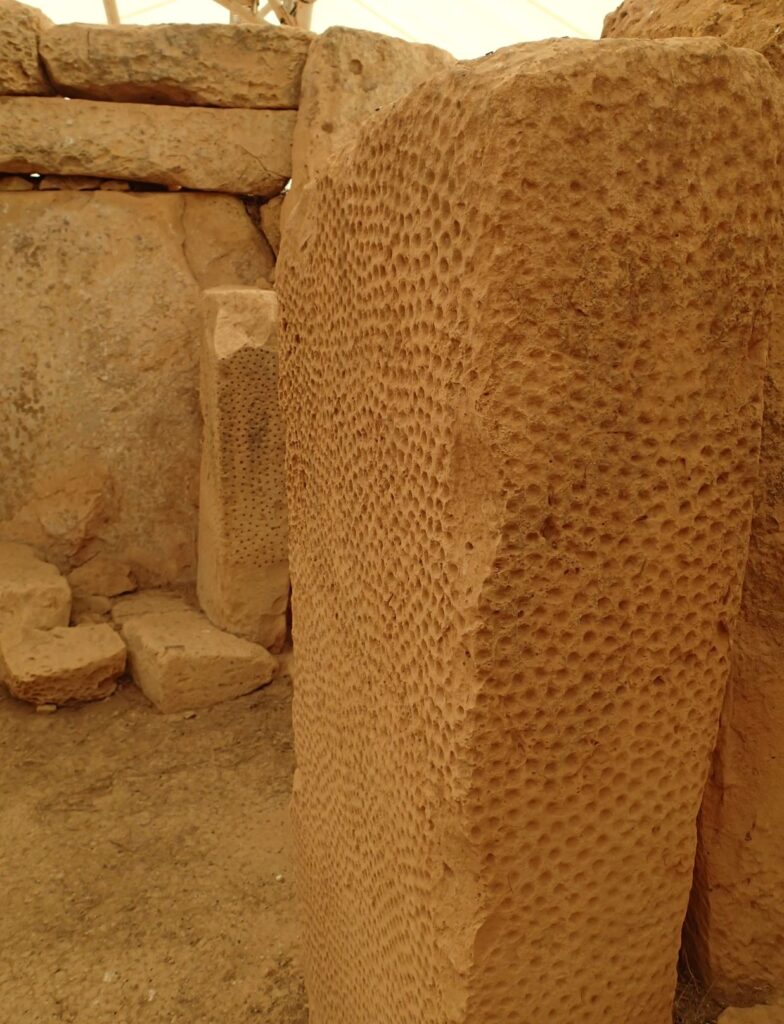
The Corona pandemic once again ensured I had a popular tourist attraction all to myself. Being able to look around in quiet solitude really added to the aura of the place.
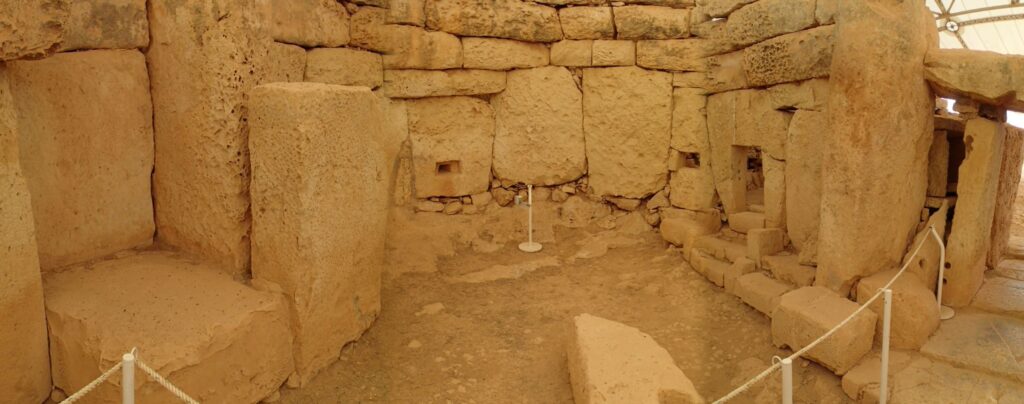
If you have an interest in history, Malta really delivers with some fascinating places to explore. Just make sure you know which bus stop you need before you go.
Visit the Hagar Qim Archaeological Park website here
If you liked this post, you may also enjoy Valletta – Siege City, Hal Saflieni Hypogeum
Leave a Reply